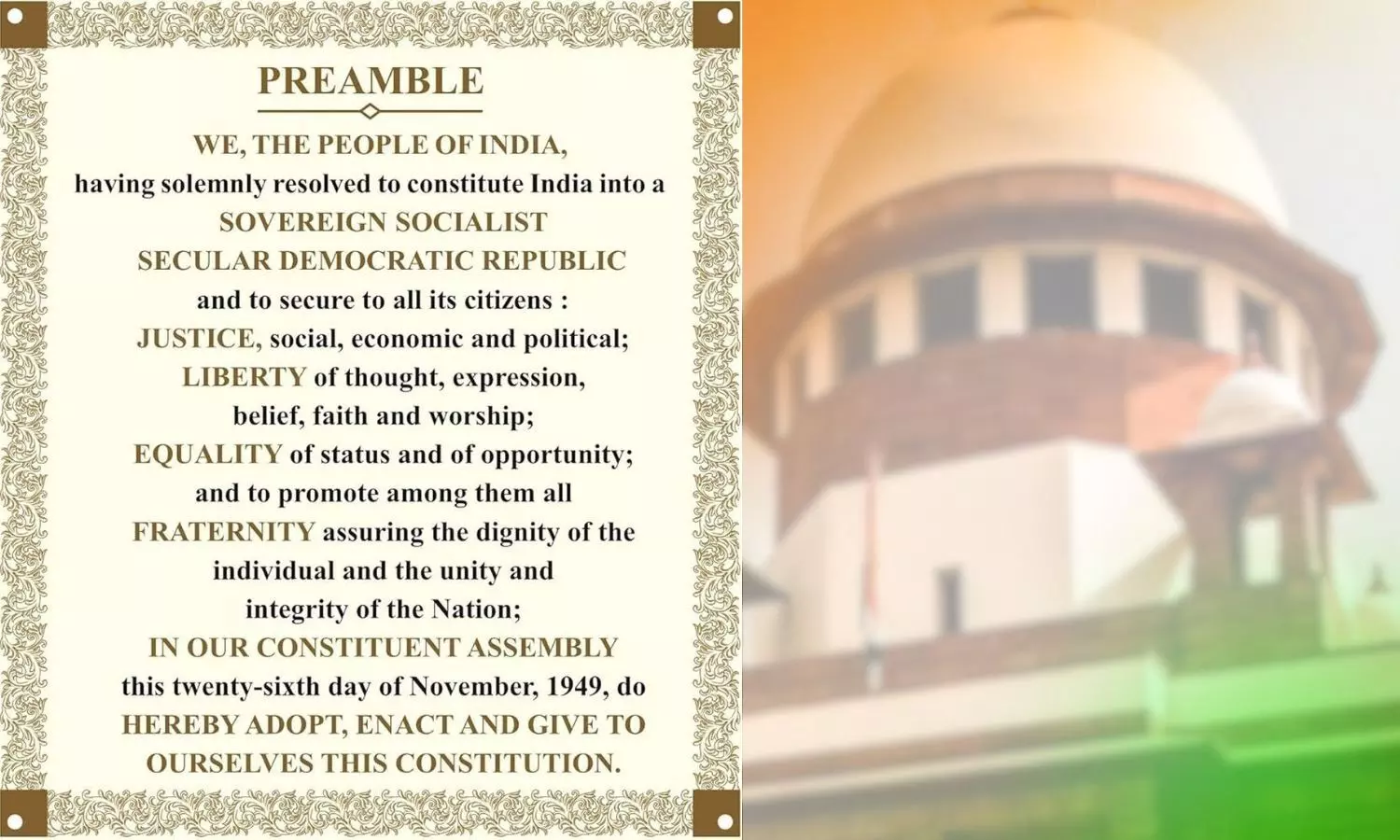'Don’t Want India to Be Secular? It's a Core Part of the Constitution’s Basic Structure': Supreme Court on Preamble Debate
The Supreme Court reaffirmed that secularism is a core part of the Constitution’s basic structure during a hearing on petitions challenging the inclusion of "socialist" and "secular" in the Preamble. The court emphasised that secularism is unamendable and integral to India's constitutional framework.
Preamble

The Supreme Court reaffirmed on Monday that "secularism" is an integral part of the Constitution’s basic structure, emphasising that several judgments have declared it unamendable due to its fundamental status.
The Court was hearing a series of petitions challenging the addition of the words "socialist" and "secular" to the Preamble of the Constitution, including submissions by senior BJP leader Subramanian Swamy, advocate Ashwini Kumar Upadhyay and petitioner Balram Singh. A bench comprising Justices Sanjiv Khanna and Sanjay Kumar presided over the matter.
Justice Khanna highlighted that secularism is enshrined in the Constitution and reiterated past rulings that solidify its place as an essential, unalterable aspect of the Constitution’s framework. He pointed to the rights under Part III, particularly equality and fraternity, which underscore secularism as a core feature.
Discussing the historical context, Justice Khanna remarked that the Constitution evolved from the French model but has been uniquely adapted to Indian values. He also noted that while "socialist" has a different connotation in the West, India’s approach has embraced change and economic growth.
Swamy contended that the Preamble's current form, dated November 26, 1949, should be amended to reflect the changes made later, suggesting it could be structured in two parts. Justice Khanna, however, noted that amendments, such as the 42nd Amendment that introduced "socialist" and "secular," are part of constitutional evolution.
During the hearing, Justice Khanna queried, “You don’t want India to be secular?” Advocate Vishnu Shankar Jain, representing Balram Singh, responded by clarifying that their challenge was to the amendment, not to the idea of secularism itself. Jain further argued that Dr. B.R. Ambedkar had raised concerns that the word "socialism" might restrict personal liberty.
Upadhyay, citing the 42nd Amendment during the Emergency, argued that its inclusion of the two words opened a "Pandora's box" and expressed concerns about future potential changes to the Preamble, including the removal of the word "democracy."
The bench has scheduled the matter for further hearing during the week beginning November 18, asking the petitioners to submit additional documents for review.


